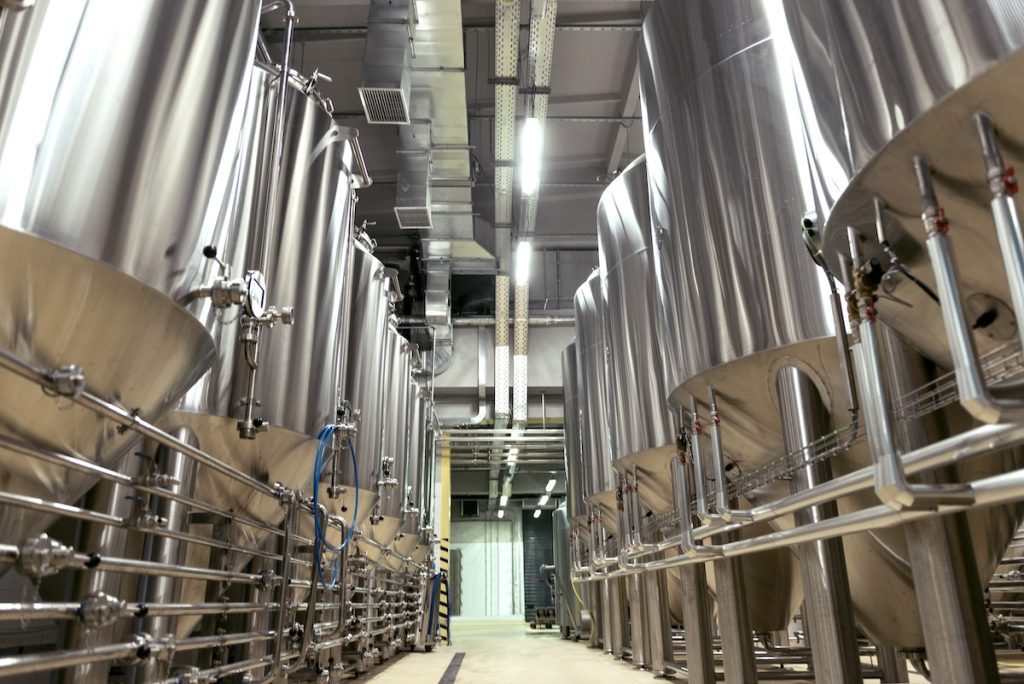When your facility handles valuable commodities—from brewing ingredients to packaged goods—protecting your inventory from pest infestation becomes critical to your bottom line. Furthermore, distribution centers, food processors, and breweries face unique challenges. These challenges come from safeguarding stored products from destructive insects. Meanwhile, these pests can compromise quality, trigger costly recalls, and damage your reputation. Implementing effective stored product pest control strategies ensures your operations remain compliant, efficient, and profitable.
For comprehensive commodity protection solutions in St Louis MO, Omni Pest Solutions delivers the expertise your facility needs.
What Makes Stored Product Pests So Challenging for Large Facilities?
Have you ever wondered why traditional pest control methods often fall short in commercial settings? Unlike common household pests, stored product pests thrive in the exact environments where food processors and distribution centers operate.
These specialized insects have evolved to infiltrate packaged goods. Additionally, they penetrate sealed containers and reproduce rapidly within stored commodities. Moreover, they’re incredibly difficult to detect until populations reach damaging levels. The food service industry faces particularly high stakes. In particular, even minor pest activity can result in rejected shipments, failed inspections, and compromised export facilities.
Common stored product pests include:
- Red flour beetle (thrives in grain processing facilities)
- Cigarette beetle (attacks tobacco, spices, and dried foods)
- Drugstore beetle (infests a wide variety of stored products)
- Indian meal moth (damages grains, nuts, and dried fruits)
- Merchant grain beetle (targets cereals and processed foods)
- Rice weevil (destroys whole grains and seeds)
- Sawtoothed grain beetle (invades flour, cereals, and dried fruits)
Why Do Breweries Need Specialized Commodity Protection?
What unique vulnerabilities do brewing operations face when it comes to pantry pests? Breweries handle large quantities of grains, hops, and other organic materials. These materials create ideal conditions for pest populations to explode.
Furthermore, the warm, humid environments typical in brewing facilities accelerate insect reproduction cycles. Even small pest populations can quickly contaminate entire batches of ingredients. As a result, this leads to production shutdowns and significant financial losses. Consequently, breweries require proactive asset and commodity fumigation strategies tailored to their specific operational needs.
Modern brewing operations also face stringent quality standards and export requirements. Therefore, maintaining pest-free facilities isn’t just about protecting current inventory. In essence, it’s about ensuring your products meet international shipping standards and regulatory compliance.
Key considerations for breweries:
- Temperature and humidity control in storage areas
- Regular inspection of incoming raw materials
- Proper rotation of ingredient inventory
- Sealed storage containers for bulk materials
- Employee training on early detection methods
How Does Professional Fumigation Differ from Standard Pest Control?
Can regular pest control services handle the demands of food processing operations? The answer is no—commercial fumigation requires specialized licensing, equipment, and expertise. Standard services simply don’t provide these capabilities.
Professional large scale fumigation involves treating entire facilities or sealed storage areas. Specifically, technicians use specialized agents that penetrate deep into products, equipment, and structural voids. Moreover, licensed technicians must follow strict protocols. These protocols ensure complete pest elimination while maintaining food safety standards. This level of service demands certifications like Quality Pro. For instance, certifications include food safety, schools, GreenPro, and public health.
Licensed professionals understand the complexities of treating active food manufacturing environments. In addition, they know how to protect sensitive equipment and maintain production schedules. Similarly, they leave no harmful residues that could contaminate your products.
Professional fumigation advantages:
- Complete penetration of stored products and packaging
- Elimination of all life stages (eggs, larvae, pupae, adults)
- No residue left on food contact surfaces
- Compliance with FDA and export facility requirements
- Minimal disruption to operations when properly scheduled
What Role Does Monitoring Play in Preventing Infestations?
Why wait for a full-blown pest infestation when early detection can save you thousands? Proactive monitoring represents your first line of defense. In particular, it protects against stored product pests in distribution centers and manufacturing facilities.
Regular sampling of stored grain, strategic trap placement, and routine scouting create an early warning system. As a result, this system catches problems before they escalate. Similarly, integrated pest management (IPM) approaches combine monitoring with sanitation, exclusion, and targeted treatments. These approaches minimize reliance on chemical interventions. This strategy proves particularly valuable for facilities seeking to maintain organic certifications or minimize environmental impact.
Monitoring also provides documentation that satisfies auditors and regulatory agencies. Consequently, maintaining detailed records of pest activity levels helps you make informed decisions. For example, you can determine when fumigation becomes necessary versus when less intensive measures suffice.
Effective monitoring includes:
- Pheromone traps placed throughout storage areas
- Regular visual inspections of products and packaging
- Temperature monitoring (many pests thrive in specific ranges)
- Collaboration with shipping providers to inspect incoming goods
- Digital tracking systems for trend analysis

How Do Export Facilities and Distribution Centers Maintain Compliance?
What happens when your shipment fails inspection at the port? For export facilities, even a single pest detection can result in rejected containers. Additionally, it can mean fumigation at destination and damaged business relationships.
Distribution centers serving multiple clients face similar pressures. For instance, one contaminated pallet can spread pantry pests throughout the entire facility. Therefore, these operations require rigorous stored product pest control protocols. These protocols must satisfy both domestic and international standards. Working with pantry pest exterminators who understand regulatory requirements ensures your facility remains audit-ready at all times.
Compliance extends beyond pest elimination. In other words, it includes proper documentation, staff training, and facility design considerations. Furthermore, many international markets require certificates of fumigation before accepting shipments. As a result, this makes professional services essential for maintaining global trade relationships.
Compliance essentials:
- Pre-shipment inspections and treatments
- Proper documentation for customs and regulatory agencies
- Staff training on pest identification and reporting
- Facility sanitation protocols that reduce pest attractants
- Partnerships with certified commercial fumigation providers
What Should Millers and Food Processors Know About Integrated Pest Management?
Is fumigation the only answer for controlling stored product pests? While fumigation remains a powerful tool, the most successful food processing operations integrate multiple strategies. As shown above, these strategies provide long-term protection.
Integrated Pest Management (IPM) emphasizes prevention, monitoring, and targeted interventions. Accordingly, this approach reduces chemical use while maintaining effectiveness. Specifically, this approach combines sanitation improvements, structural repairs, climate control, and biological controls. Fumigation is reserved for situations where pest levels warrant intensive treatment. By adopting IPM principles, millers and food processors create sustainable pest management programs. These programs protect both products and profitability.
This holistic approach also aligns with consumer expectations for responsible food production. Additionally, IPM strategies often reduce overall pest management costs. In the long run, preventing problems costs less than repeatedly treating active infestations.
IPM components include:
- Sanitation protocols that eliminate food sources and harboring sites
- Structural maintenance to seal entry points
- Climate control to create unfavorable conditions for pests
- Biological controls when appropriate
- Strategic fumigation as part of comprehensive planning
Ready to Protect Your Facility with Professional Stored Product Pest Control?
Don’t let preventable pest infestations threaten your operations, reputation, or bottom line. Whether you manage a brewery, distribution center, or food processing facility, Omni Pest Solutions brings the specialized expertise your operation demands. Our certifications demonstrate our commitment to excellence.
Our team understands the unique challenges facing the food service industry. Likewise, we deliver customized solutions that protect your commodities without compromising safety or quality. Moreover, our Quality Pro certifications in food safety, schools, GreenPro, and public health demonstrate our commitment to excellence. These certifications cover all aspects of commercial fumigation. Contact Omni Pest Solutions today to schedule a comprehensive facility assessment. Discover how proactive stored product pest control can safeguard your business in St Louis MO.

